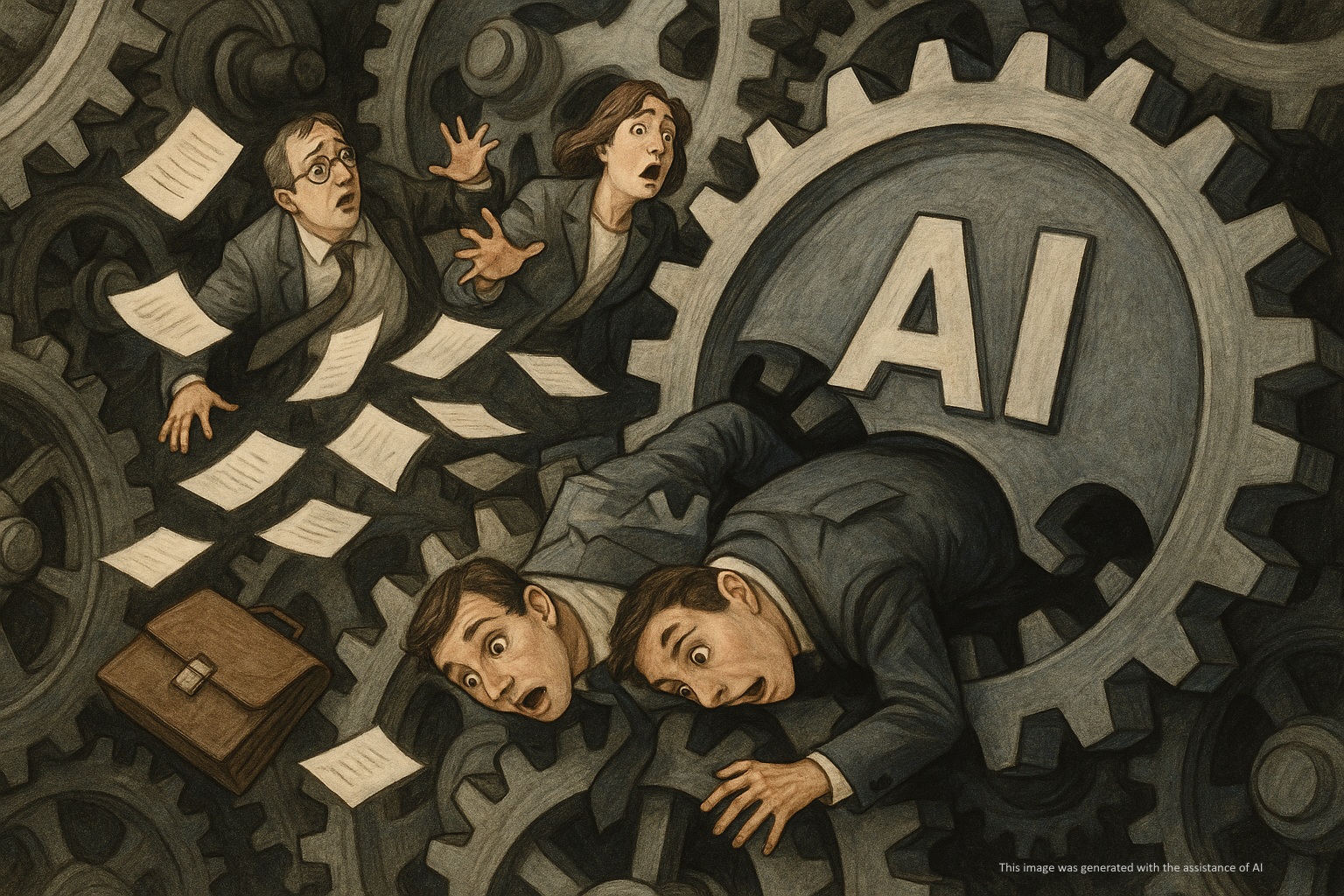Already Impacting
Submitted by Atlas Indicators Investment Advisors on June 30th, 2025
The impact of technology on service-related jobs, particularly through the advent of artificial intelligence (AI), is drawing notable parallels to the transformations experienced by factory work during waves of automation. According to this New York Times article, debuts of new technologies in the industrial era did not merely eliminate blue-collar jobs but often "degraded" them by breaking down skilled work into repetitive, simplified tasks. Assembly lines, for instance, replaced skilled mechanics with numerous workers performing specialized, monotonous tasks at a rapid pace, leading to complaints of "speed-up, work intensification, and work degradation."
A similar dynamic is now unfolding in sectors such as software development. AI is not only threatening potential layoffs but also altering the quality of work. At companies like Amazon, software engineers report that their roles are becoming more routine, less thoughtful, and much faster-paced. Output goals have increased, deadlines are tighter, and there is mounting pressure to use AI tools to maintain productivity.
Just as factory workers lost control over their work pace and methods, white-collar workers are experiencing increased monitoring and standardization. Projects that once took weeks or months and allowed for reflection and creative problem-solving are now expected to be completed in days, with AI handling much of the routine coding and testing. This shift reduces the time for thoughtful work and makes employees feel like "bystanders in their own jobs." The proliferation of AI tools means that much of the creative work (e.g., writing new code and solving complex problems) is being replaced by reviewing and editing AI-generated suggestions, a task many find less engaging.
The pressure to keep up with AI-augmented productivity targets is analogous to the blue-collar "speed-up," where workers had to increase their pace to match what machines made possible. The sense of autonomy and craftsmanship is diminished, replaced with shifts toward maximizing output and efficiency. In some cases, blue-collar workers responded to these changes in their workplace with labor organizing. While it hasn’t crossed this threshold yet, engineers are starting to voice concerns about job satisfaction and the future of their careers.

